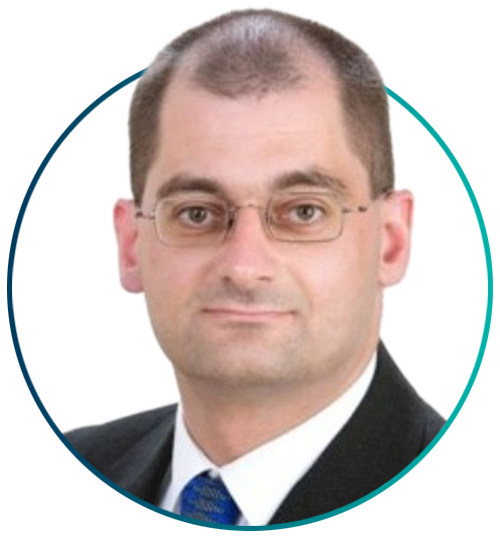The final text of the EU’s revised Alternative Investment Fund Managers Directive, or AIFMD 2.0, was published on March 26, 2024. As the April 16, 2026 deadline for EU member states to implement the directive into national law approaches, U.S. AIF managers in particular need to understand the differences between prevailing U.S. regulations and the new environment they must address to stay compliant and build on the opportunities AIFMD offers.
How can US fund sponsors gain access to valuable EU investor audiences?
The EU has valuable investor audiences including institutions, pension funds, insurers, supranational bodies, family offices, and HNW individuals. All of these are potentially high-value targets for U.S. private funds because the EU has established marketing and distribution passporting across its member states. However, U.S. fund sponsors still need to know how to access the market, which is generally reached through an EU-authorized Alternative Investment Fund Manager (AIFM).
U.S. fund sponsors can partner with an existing authorized AIFM either through a delegation model, where it makes investment decisions allowing the AIFM to manage risk, or an advisor model, so the sponsor can advise the AIFM on investments and divestments. An authorized AIFM has the passporting capability to market non-regulated non-supervised funds across the EU member states. However, it is also obligated to look after the best interests of the investors, as U.S. sponsors will benefit more from a cost perspective.
What are the benefits and constraints of pre-marketing in the EU?
Pre-marketing is a cost-effective means for U.S. sponsors to test the waters for attracting potential investors in the EU, but it still carries regulatory constraints. U.S. sponsors can approach potential EU investors with pitch decks, term sheets, and detailed strategies to gauge interest prior to full-scale fundraising in the EU. They must state or apply for an EU pre-marketing passport through an EU-authorized AIFM, allowing them to operate across all EU member states, or apply for permits individually in each EU member state where they intend to operate. Even at this preliminary stage, the U.S. sponsor usually benefits from pre-marketing through an intermediary (like a placement agent, being mandated by the authorized AIFM).
Why are Luxembourg and Ireland the preferred bases for U.S. sponsors?
In principle, EU AIFMs can access all member states. In practice, U.S. sponsors typically prefer to base their funds in Luxembourg or Ireland to access the entire EU market, whereas fund domiciles in other member states tend to focus primarily on serving their own local markets. For U.S. sponsors, these two locations are typically preferred due to the wide variety of fund structures and operational knowledge available.
How can delegation to a third-party AIFM benefit U.S. fund sponsors?
The third-party AIFM structure requires that, if the EU authorized AIFM is delegating portfolio management and other functions to the U.S. sponsor, they must be managed according to AIFMD regulations, broadly embracing risk management and portfolio management. This often includes responsibilities for regulatory reporting (Annex IV Reporting), usually on a quarterly basis.
Delegation provides benefits, as long as the EU-authorized AIFM is well equipped to manage the complex mechanics of delegation, including compliance with the relevant EU regulations.
How substantial is your leverage?
AIFMD 2.0 has introduced extensive regulations on leverage and loan origination by compliant fund sponsors. These include rules regarding potential conflict of interest, use of proceeds, amounts held for risk retention, and notably, limits on the amount of leverage that can be raised by certain categories of AIFs. For U.S. sponsors, such regulations clearly may have operational implications – hence the value of working with a capable EU-authorized AIFM to coordinate with on these rules.
How do EU sustainability regulations impact U.S. fund sponsors?
U.S. sponsors may not be familiar with EU sustainability regulations, which can impact even the naming of their fund. Under the EU Sustainable Finance Disclosure Regulation (SFDR), asset managers operating in the EU need to classify their funds according to their sustainability profile with corresponding fund naming conventions and disclosure requirements as per recent ESMA guidelines.
SFDR Article 8 funds promote positive environmental or social characteristics, while Article 9 funds take sustainable investment as their objective. U.S. sponsors may benefit if they market their funds to sustainability-conscious investors, but they need to understand the compliance overheads. Once again, an EU-authorized AIFM can help navigate these unfamiliar waters.
In-house or outsource? The advantages of third-party AIFMs
For the majority of U.S. sponsors, the regulatory burdens of creating and running their own AIFMD-compliant fund management company, with associated approval times and resource requirements, are just too high. It usually makes far more sense to outsource these to a third-party authorized AIFM provider, freeing the U.S. sponsor to focus on deal sourcing, investment management, and the other core disciplines of running an alternative fund.
At CSC, we recognize the complexities of the evolving AIFMD landscape. Our comprehensive suite of solutions is designed to support AIFs at every stage of their AIFMD journey, from implementation and throughout future local regulatory changes. From fund administration and depositary services to expert regulatory compliance support, CSC offers the tools and expertise to navigate transformation successfully.
For more information on how CSC can help, visit our fund solutions page to learn more.
